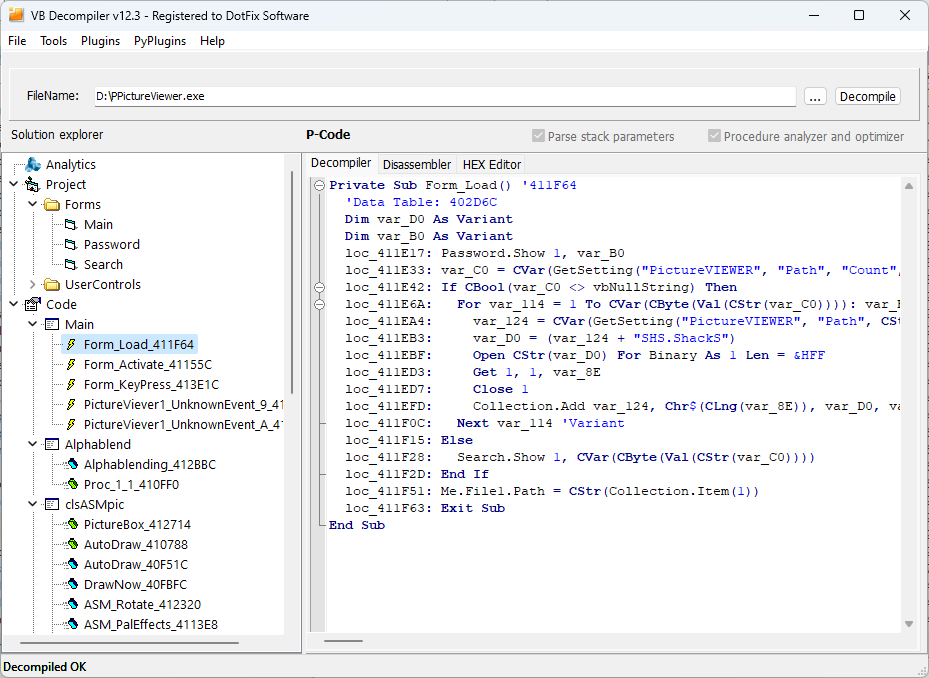
Description
VB Decompiler: The Ultimate Tool for Analyzing and Recovering Visual Basic Programs
Look no further than VB Decompiler if you need a powerful tool to analyze, recover, or simply understand the inner workings of programs written in Visual Basic 5.0/6.0 or any .NET-based language such as C# or Visual Basic. With its intuitive interface and advanced features, this software is perfect for developers, researchers, and anyone who wants to gain insight into a program's codebase without access to the original source files.
VB Decompiler supports decompiling both EXE, DLL, and OCX files written in Visual Basic 5.0/6.0 as well as programs developed using .NET technologies like C# or VB.NET. It allows you to explore both decompiled and disassembled code while also providing the ability to view specific addresses and constants in a built-in hex editor.

Visual Basic programs can be compiled into either an interpretive p-code (pseudocode) or native machine code for x86 processors, while .NET assemblies are compiled into either pseudocode MS IL (managed code) or native machine code for both x86 and x64 architectures. Since p-code consists of high-level commands, there is a real possibility to recover most code from it, although variable names, some function names and some other things may not be recoverable due to their absence in the compiled program.
Despite the existence of over 1,400 undocumented pseudocode commands, VB Decompiler does its best to restore the original source code as closely as possible (up to 85% code can be recovered). This makes it an indispensable tool for researchers and developers who need to analyze or recover lost codebases. Even when a program has been compiled into native machine code, VB Decompiler can still help by providing powerful disassembling capabilities, emulating commands and can recover up to 75% of original code.
VB Decompiler also supports the decompilation of over 500 API transition functions from MSVBVM50.DLL and MSVBVM60.DLL, making it an essential tool for working with COM OLE objects. In short, VB Decompiler does everything possible to provide a readable codebase for analysis or recovery purposes. While there may be some errors in collapsing optimizations and outputting incorrect instructions due to the complexity of handling various optimization techniques, this method is still incredibly useful for analyzing code and saving valuable time.
When it comes to programs created using Visual Studio .NET, VB Decompiler fully restores assembly table structures, disassembles all private and public methods (regardless of compilation type: MS IL or machine code), and partially decompiles MS IL code into C#-like syntax. This can be done without requiring the .NET Framework environment or a supported .NET operating system. The entire .NET decompiler is developed from scratch and does not use Reflection classes, which increases its stability when dealing with obfuscated code.
In conclusion, VB Decompiler is an invaluable tool for analyzing programs, recovering lost source codes, or understanding the inner workings of complex applications. It's perfect for developers who need to analyze code without access to original source files, researchers seeking insights into program behavior, and anti-virus companies looking to reverse engineer malicious software.